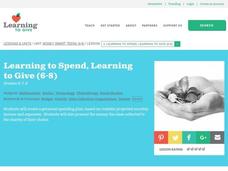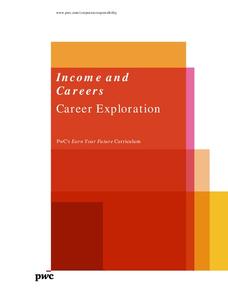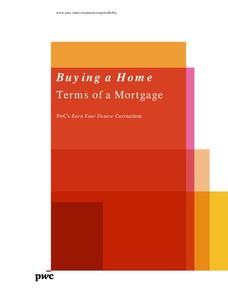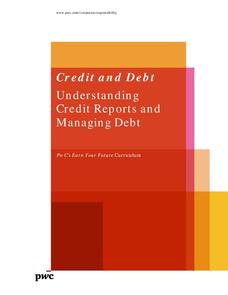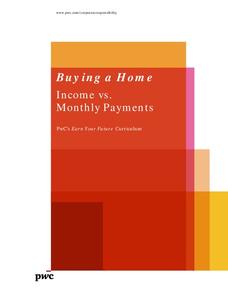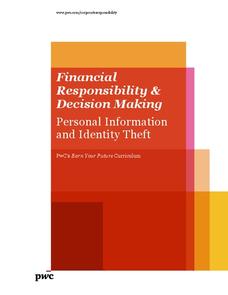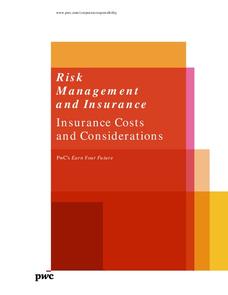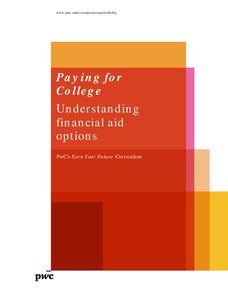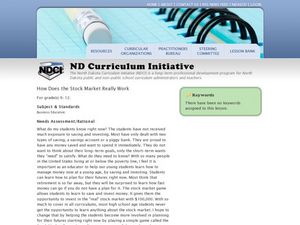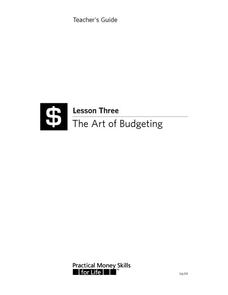Curated OER
Comparison Shopping
Students practice developing budgets. In this financial awareness lesson, students read The Monster Money Book and list ways the characters saved money in the story. Students plan a budget and demonstrate how to look for bargains when...
Curated OER
Money Smart Teens
Students plan positive goals for spending resources and understand why not to spend. In this financial planning lesson, students set up personal spending plans based on their resources and their long term plans. Students plan for...
Curated OER
Learning to Spend, Learning to Give
Students create a monthly budget. In this finances lesson, students learn the terms budget, income and expenses. Students create a monthly spending plan and keep track of what they make and spend for the next 30 days. When complete,...
Curated OER
RISKY BUSINESS--OR NOT!
Students learn about the importance and risk that stocks carry within a business. In this financial management lesson, students use role play and case scenario situations to decide what stocks are best for given companies. Based on the...
Curated OER
Gotcha Covered
Students participate in investments. They purchase property for future financial return or benefit. They discover a stock strategy in which you own stock and write (sell) a call at the next strike price above the current stock value.
Learning to Give
Five Thousand Dollars!
How does consumerism affect global poverty? Upper graders find out about cost benefit, wants and needs, and making good consumer choices as they explore this global topic. They role-play an impulse spending experience and work through...
Curated OER
Marriage and Financial Goals, Budgeting Strategies
There is no more useful life skill to learn than budgeting and setting financial goals. It's math that is used by every person, everyday. Learners examine the responsibilities and costs involved in family economics. Through a series of...
PwC Financial Literacy
Evaluating Financial Information
Advertising is all around us. Sometimes those advertisements are directed at young people, so it's important for youngsters to recognize false advertising and fraud when they see it. That's what this instructional activity is all about....
PricewaterhouseCoopers
Consumer Fraud
Falling into the hands of a credit scam is much too common these days, and the young adults in the classroom need to be prepared. Through the activity, learners discover how to be a safe spender and use common sense when presented with a...
PwC Financial Literacy
Income and Careers: Career Exploration
Elementary schoolers take part in a virtual career day and are exposed to various career opportunities in the finance, education, and medical fields. By accessing a video you can download from the PwC Financial website, learners "shadow"...
PwC Financial Literacy
Buying a Home: Terms of a Mortgage
Buying a home, dealing with a lender, securing a mortgage; these are daunting tasks for many adults. Why not teach middle schoolers about this area of adulthood so they are better-prepared to make the leap into home ownership when they...
PricewaterhouseCoopers
Credit and Debt: Understanding Credit Reports and Managing Debt
Credit cards are tempting to use right out of high school. Teach your upperclassmen the benefits and challenges of credit and how it can affect their future. The lesson covers credit scores and ways to strengthen credit if learners find...
PricewaterhouseCoopers
Paying for College: Finding the Right Fit
Most want to attend college, but do they know where? How will they afford it? How do they apply? Learners discover the costs associated with college and the best way to budget and possibly apply for financial aid.
PricewaterhouseCoopers
Buying a Home: Income vs. Monthly Payments
Purchasing a house takes more plan than elementary schoolers realize. Each buyer will look at monthly income to determine what they can afford for a mortgage and other expenses.
PwC Financial Literacy
Finanacial Responsibility and Decision Making: Personal Information and Identity Theft
Elementary schoolers look into the very real, and scary, practice of identity theft. They discover the main techniques used by people who steal other people's identity. Learners produce an identity theft tip sheet and share their tips...
PricewaterhouseCoopers
Credit and Debt: Decisions, Decisions...
Borrowing money seems like a great idea until you are in over your head. High schoolers learn the benefits and risks associated with credit and how to be a responsible borrower. More than just credit cards, they learn trustworthiness is...
PricewaterhouseCoopers
Risk Management and Insurance: Insurance Costs and Considerations
Compare the different types of insurance with high schoolers, and have them learn the benefits and costs of medical, auto, and home policies. The resource addresses what makes some insurances more costly and what teenagers can do to find...
PricewaterhouseCoopers
Buying a Home: Mortgage Decisions
High schoolers don't think they need to know about mortgages, but with college and renting soon approaching, fiscal responsibility is necessary. Pupils learn the vocabulary of a mortgage and calculate different home values to determine...
PricewaterhouseCoopers
Paying for College: Understanding Financial Aid Options
With many options to pay for college, middle schoolers learn about each possibility and that continuing their education is worth the investment. They discover the difference between a grant and a loan and that some expensive colleges may...
Curated OER
How Does the Stock Market Really Work?
Investigate the stock market as it relates to the business world. Young scholars investigate ways to invest their money for the future. They make a presentation and discuss their findings with the class.
Visa
The Art of Budgeting
Class members learn how to set up and maintain a personal budget through discussion, financial planning worksheets, and a brief PowerPoint presentation.
Federal Reserve Bank
Income Taxes
Most adults dread April 15 — tax day! Tax preparation can be intimidating even for adults. Build confidence by leading individuals through the process and then give them a scenario to practice. The exercise uses tax vocabulary to give...
PwC Financial Literacy
Charitable Giving
Charitable organizations and monetary donations to these organizations are the focus of the financial literacy lesson plan presented here. Learners explore how donations benefit both the organization and the people it serves. Each pupil...
PwC Financial Literacy
Credit Reports
Middle schoolers discover why it's important to establish a positive credit history and understand the value of credit reports to lenders and borrowers. They apply legal guidelines to establish the uses of a credit report other than...




